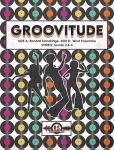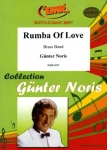PROGRAM NOTE
Festival in Russia is a transcription for concert band of Anatoli Liadov's dazzling orchestral work, Polonaise (Op. 49). Written at the turn of the century, its energetic dance rhythms and melodic expressiveness will bring a delightful Old World charm to today's audiences.
Liadov (1855-1914) was a student of Rimsky-Korsakov at the St. Petersburg Conservatory, and succeeded him as the composition teacher. (One of Liadov's most notable students at the Conservatory was Sergei Prokofiev.) At the time the Polonaise was written (1899), Liadov was at the height of his profession and one of his era's most respected and widely-known composers.
The first performance of this transcription for concert band was given by the West Virginia University Wind Symphony at the Kennedy Center for the Performing Arts on February 24, 1988, Don Wilcox conducting.
PERFORMANCE SUGGESTIONS
The tempo of the work is set by the melodic material of the opening section -- the extended lines of dotted sixteenth, thirty-second rhythms can move with grace and clarity only within a narrow range of tempo. While the interpretation needs to be bright and vivacious, if it becomes frantic or unclear, you need to slow down. A tempo in the range of quarter equals 88-104 should work well in most situations.
The meno mosso at measure 41 is not in the original score; its presence is suggested by the music's stylistic change and is characteristic of the performance practice of the period. This section of the work is best approached molto espressivo. The rubato (measure 60) is also the transcriber's suggestion.
As a basic guideline -- if your interpretation fits the expressive, romantic character of the period, you are probably "on the right track."
Don Wilcox
gedruckt +80,00 EUR




